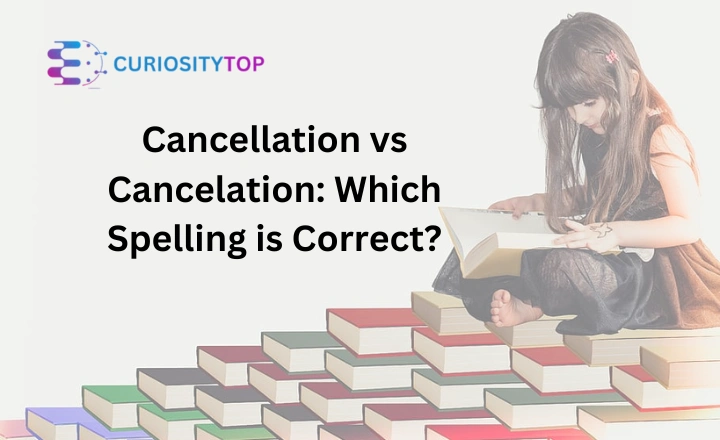Scrap or Scrape: What is the difference?
Scrap or Scrape? That’s the question that’s been nagging at me lately. As someone who loves words but often stumbles over their nuances, I’ve found myself in a linguistic pickle.
You know how it goes when you’re writing away, feeling confident, when suddenly doubt creeps in. Is it “scrap the project” or “scrape the project”? The confusion is real, and it’s been driving me up the wall.
But I’m determined to crack this code once and for all. Join me on this wordy adventure as we unravel the mystery between these tricky twins. Trust me, by the end; we’ll both be linguistic ninjas, ready to tackle any “scrap” or “scrape” situation that comes our way.
What’s the Big Deal? Understanding Why It Matters
You might be thinking, “Why bother? They’re just words!” But trust me, using the right one can make a huge difference. Imagine telling your boss you’re going to “scrap the data from the website” when you mean “scrape” Yikes! That’s the kind of mix-up that could lead to some serious confusion.
These words pop up everywhere, from everyday conversations to technical discussions about web page scraping. Getting them right shows you know your stuff and helps you avoid those awkward moments when someone has to correct you. Plus, it’s just plain satisfying to use language correctly!
I have created a comprehensive table that directly follows the content of the document about the differences between “scrap” and “scrape”:
| Aspect | Scrap | Scrape |
|---|---|---|
| Definition | Leftover or discarded material | To rub something roughly against a surface |
| As a Noun | A small piece or bit of something – Leftover material – A minor fight or argument | The act of rubbing against a surface – A mark left by rubbing – A difficult situation |
| As a Verb | To get rid of something – To cancel or abandon a plan – To discard unused items | To rub something roughly against a surface – To remove a layer – To barely manage to achieve something |
| Context Examples | “I’ll scrap all the party decorations” – “Collecting scrap metal” – “The team decided to scrap their original plan” | “I scraped my knee when I fell” – “Scraping frost off a car window” – “We barely scraped together enough money” |
| Tech Context | Incorrectly used as “web scrapping” | Correctly used as “web scraping” (data extraction) |
| Visualization | Think: Throwing away or collecting leftovers | Think: Rubbing or removing a surface layer |
| Pronunciation Trick | One ‘p’ – associated with discarding | Two ‘p’s – associated with surface action |
What is the meaning of scrap or scrape?
“Scrap scrape” isn’t a real phrase, but it sounds like a mix-up of two words: “scrap” and “scrape”. “Scrap” means leftovers or waste that people might throw away. It’s often used for metal or other materials that can be recycled.
People who scavenge look for scrap to collect and salvage. “Scrape” means to rub something hard against a surface. For example, you might scrape old paint off a wall. When we discard things, we scrape them into the trash. Both words can be about getting rid of stuff we don’t need anymore, like remnants from a project.
Breaking It Down: Scrap vs Scrape Defined

Start with the basics. What do these words mean?
Scrap: More Than Just Leftovers
Scrap is a versatile little word. As a noun, it means:
- A small piece or bit of something, usually leftover or discarded
- A fight or argument (usually a minor one)
As a verb, to scrap means:
- To get rid of something you don’t need anymore
- To cancel or abandon a plan or project
Think of it like this: When you’re done with a big art project, all those little bits of paper left over? Those are scraps. Or if your old sci-fi novel idea isn’t working, you might scrap the whole thing and start fresh.
Scrape: It’s All About the Surface
Now, scrape is a whole different ball game. As a verb, it means:
- To rub something roughly against a surface, often removing a layer
- To barely manage to get by or achieve something
As a noun, a scrape is:
- The act of scraping
- A mark left by scraping
- A difficult situation
Picture this: You’re trying to get that stubborn ice off your windshield on a frosty morning – that’s scraping. Or maybe you’re living paycheck to paycheck, barely making ends meet – you could say you’re “scraping by.”
Real-Life Examples: Seeing Scrap and Scrape in Action

Now that we’ve got the definitions down let’s look at how these words show up in everyday life:
Scrap in the Wild
- “After the party, I had to scrap all the decorations – they were pretty much ruined.”
- “I collect scrap metal as a hobby. You’d be surprised what people throw away!”
- “The team decided to scrap their original plan and start from scratch.”
Scrape Scenarios
- “I scraped my knee when I fell off my bike. Ouch!”
- “The sound of nails scraping on a chalkboard makes me cringe.”
- “We barely scraped together enough money for rent this month.”
See how different they are? Scrap is all about getting rid of things or leftover bits, while scrape deals with surfaces and struggling to manage.
What is the difference between scrapped and scraped?
“Scrapped” and “scraped” sound alike but mean different things. “Scrapped” comes from “scrap“, which means throwing away waste or unused materials. When something is “scrapped”, it’s tossed out or recycled. Old cars might be scrapped for their metal.
People who scavenge for leftovers might look for scrapped items to salvage. “Scraped” comes from “scrape”, which means to rub or scratch a surface. You might scrape your knee if you fall, or scrape frost off a car window. Both words can be about getting rid of things, but “scrapped” is about discarding whole items, while “scraped” is about removing a layer of something.
The Tech Angle: Web Scraping vs. Web Scrapping

Now, let’s talk tech for a minute. You might have heard the term “web scraping” thrown around. If you’re not careful, this can get confusing!
Web scraping (with an ‘e’) is the process of automatically collecting data from websites. It’s helpful for price comparisons, research, and data analysis. When you scrape a website, you’re extracting information from it.
But here’s where people often mess up: they’ll say “web scrapping” instead. Remember, scrapping means getting rid of something. So, if you talk about “web scrapping,” it sounds like you’re throwing away websites!
Here’s a quick comparison:
- Web scraping: Collecting data from websites automatically
- Web scrapping (incorrect): It sounds like you’re discarding websites!
So next time you’re chatting about web page scraping, ensure you’ve got that ‘e’ in there. Your tech-savvy friends will thank you!
Why Do We Mix Them Up? The Psychology of Similar Words
We know scrap and scrape are different. But why do our brains insist on confusing them sometimes? Well, there are a few reasons:
- They sound similar. When we talk fast or don’t pay close attention, our ears (and mouths) easily mix them up.
- They’re both short, one-syllable words. Our brains tend to lump similar-looking short words together.
- In some contexts, they make sense either way. If you’re not thinking too hard, “scraping away old ideas” and “scrapping old ideas” might sound similar.
- Autocorrect and spellcheck sometimes catch the difference. If you type the wrong one, your computer might not flag it as an error.
The key is to slow down and think about what you really mean. Are you getting rid of something (scrap), dealing with a surface or barely managing (scrape)? Take a second to picture the action in your head, and you’ll be more likely to choose the right word.
Mastering the Difference: Tips and Tricks

Alright, so how do we make sure we’re using the right word every time? Here are some tricks that help me:
- The ‘p’ test: Scrap has one ‘p’, and it’s about tossing things out. Scrape has two ‘p’s, and it’s often about using a tool (which might have two handles).
- Rhyme time: Scrap rhymes with “trap” – think of trapping all those leftover bits in the trash. Scrape rhymes with “tape” – imagine scraping tape off a surface.
- Action visualization: Picture the action in your head. Are you throwing something away, or are you rubbing against a surface? That’ll tell you which word to use.
- Context clues: Look at the words around it. You probably mean scrap if you’re talking about leftovers, discarding, or fights. Go with scrape if it’s about surfaces, struggle, or barely managing.
- When in doubt, look it up! There’s no shame in double-checking. It’s better to take a few seconds to verify than to use the wrong word.
Beyond Scrap and Scrape: Other Commonly Confused Word Pairs

Now that you’re a pro at scrap vs. scrape, let’s look at some other word pairs that often trip people up:
- Affect vs. Effect
- Their vs. There vs. They’re
- Your vs. You’re
- To vs. Too vs. Two
- Lose vs. Loose
Each pair has its own tricks for keeping them straight. The more you practice, the easier it becomes to use the right one every time.
Why It All Matters: The Importance of Precise Language
You might be wondering, “Does it matter if I mix up scrap and scrape once in a while?” Clear communication is super important, both in personal life and in professional settings.
Using the right words:
- It shows you’re careful and attentive to detail
- Prevents misunderstandings that could lead to mistakes
- It makes your writing and speech more polished and professional
- It helps you express your ideas more accurately
Plus, mastering tricky word pairs like this helps train your brain to be more aware of language in general. It’s like a workout for your vocabulary!
Conclusion
So there you have it, the ultimate guide to scraped vs scrapped. We’ve covered their definitions, seen them in action, and even peeked at how they appear in the tech world with web page scraping.
Scrap is all about getting rid of things or those little leftover bits, while scrape deals with surfaces and struggles to manage. Keep these differences in mind; you’ll be using them like a pro in no time.
Language is constantly evolving, and there’s always more to learn. But mastering tricky pairs like this is a great way to sharpen your skills and boost your confidence. So go forth and use your new knowledge – your writing (and your spellcheck) will thank you!
Master the Nuances of These Similar Terms.” Enhance your understanding further by exploring related articles like “Is It Correct to Say ‘Agreed‘?” and “To Short or Too Short?” For a dose of positivity, check out “Have a Great Rest of Your Week.”
FAQs
What is a synonym for scrap?
Common synonyms for “scrap” include fragment, remnant, leftover, bit, piece, or discarded material.
What is the term for scraping?
Scraping is often referred to as abrasion, rasping, or scouring. In digital contexts, it’s called web scraping or data extraction.
What does scrap mean in slang?
In slang, “scrap” can mean a fight or argument. For example, “They got into a scrap at the bar.” It can also mean abandoning or discarding something, as in “Let’s scrap that idea.”







